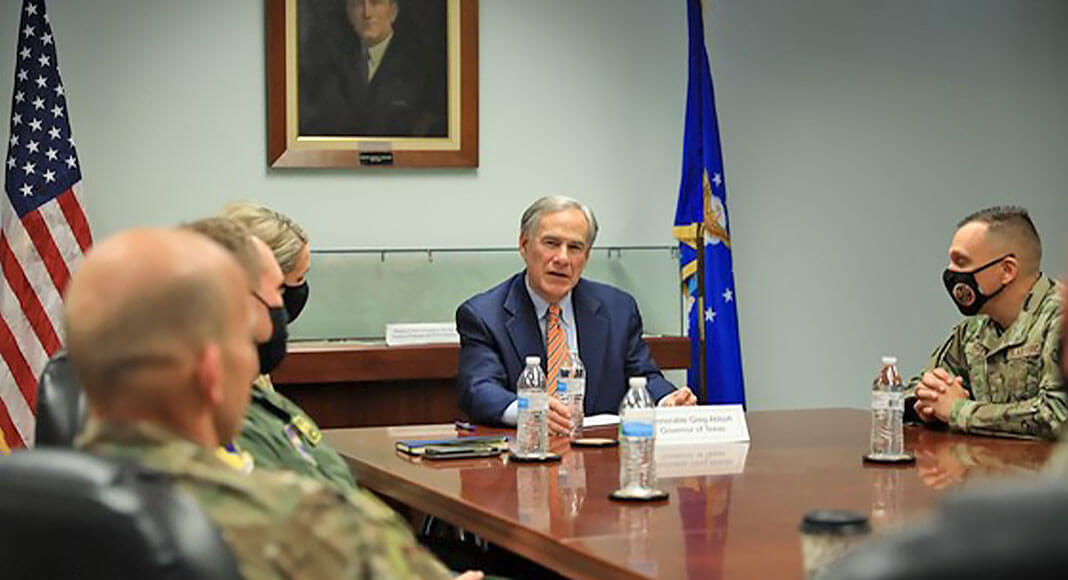
Texas Border Business
AUSTIN – Governor Greg Abbott today visited Sheppard Air Force Base in Wichita County, where he met with United States Air Force representatives to discuss the state’s ongoing support of military bases, military service members, and military veterans in Texas. The Governor thanked the men and women stationed at Sheppard Air Force Base for their service and reaffirmed Texas’ commitment to supporting members of the military. Governor Abbott also recognized the 80th anniversary of Pearl Harbor and encouraged all Texans to honor those who continue to defend the United States.

“There has long been a deep and enduring bond between the State of Texas and the U.S. military, and on behalf of a grateful state, I want to thank the men and women of Sheppard Air Force Base for your service and sacrifice for our nation,” said Governor Abbott. “Not only is Sheppard Air Force Base critical to the defense of our nation, but it is also a valued member of the Wichita Falls community. Your impact helps small businesses grow and succeed, boosts the local school system, and contributes to a strong and thriving community. Our service members mean so much to Wichita Falls, to Texas, and to the entire nation, and we will continue to tirelessly support those who defend our nation.”
Sheppard Air Force Base employs more than 9,500 people, including active duty and civilian personnel, and supports more than 3,700 retirees in the area. It is the largest employer and economic driver in the Wichita Falls community, and contributes to an economic impact of more than $4.6 billion in the Texas economy.
Texas is home to 15 major military installations and the Army Futures Command. Combined, they add over $123 billion to the Texas economy, directly support 220,000 uniformed and civilian jobs, and directly or indirectly support over 630,000 jobs in communities across the state. Texas is also home to more than 1.6 million veterans and their families. In recent years, Texas has developed new ways to support service members, including: removing barriers to employment for military spouses and veterans; securing education opportunities for military children; and helping active duty servicemembers transition into civilian employment.












